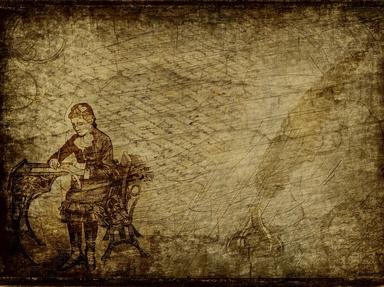Quiz Answer Key and Fun Facts
1. What term did Gerard Manley Hopkins employ for the type of rhythm used in his poetry?
2. What name do scholars typically give to the poems Gerard Manley Hopkins wrote during his depressed years, one of which he claimed to be "written in blood"?
3. "I wake and feel the fell of ____, not day." What word belongs in the blank to this opening line of one of Hopkins's sonnets?
4. What eleven-line poetry form was invented by Gerard Manley Hopkins and used in three of his poems?
5. The poems of Gerard Manley Hopkins were not published until after his death.
6. "Glory be to God for _____ things / For skies of couple-colour as a brinded cow."
7. What poem, which Hopkins called "the best thing he ever wrote," uses in its title another name for the common kestrel?
8. What poem is dedicated to the memory of five Franciscan nuns who were forced to leave Germany by the Falk Laws?
9. "The world is charged with the grandeur of God. / It will flame out, like shining from shook foil; / It gathers to a greatness, like the ooze of ____ / Crushed." What word is missing from this poem by Gerard Manley Hopkins?
10. What poem was inspired by the felling of a row of trees?
11. "As ____ catch fire, dragonflies draw flame." What is the missing word from this opening line of a poem by Gerard Manley Hopkins?
12. "The child is father to the man," Hopkins writes in one of his poems. "How can he be? The words are wild." Who is Hopkins quoting and questioning with these lines?
13. "Not, I'll not, _____ comfort, Despair, not feast on thee..." What type of comfort will the poet not feast upon?
14. "Nothing is so beautiful as Spring / when weeds, in wheels, shoot long and lovely and ____." What alliterative word completes this line from "Spring" by Gerard Manley Hopkins?
15. "And though the last lights off the black West went / Oh, morning, at the brown brink eastward, springs - / Because the ____ over the bent / World broods with warm breast and with ah! bright wings." What broods over the bent world?
Source: Author
skylarb
This quiz was reviewed by FunTrivia editor
looney_tunes before going online.
Any errors found in FunTrivia content are routinely corrected through our feedback system.

